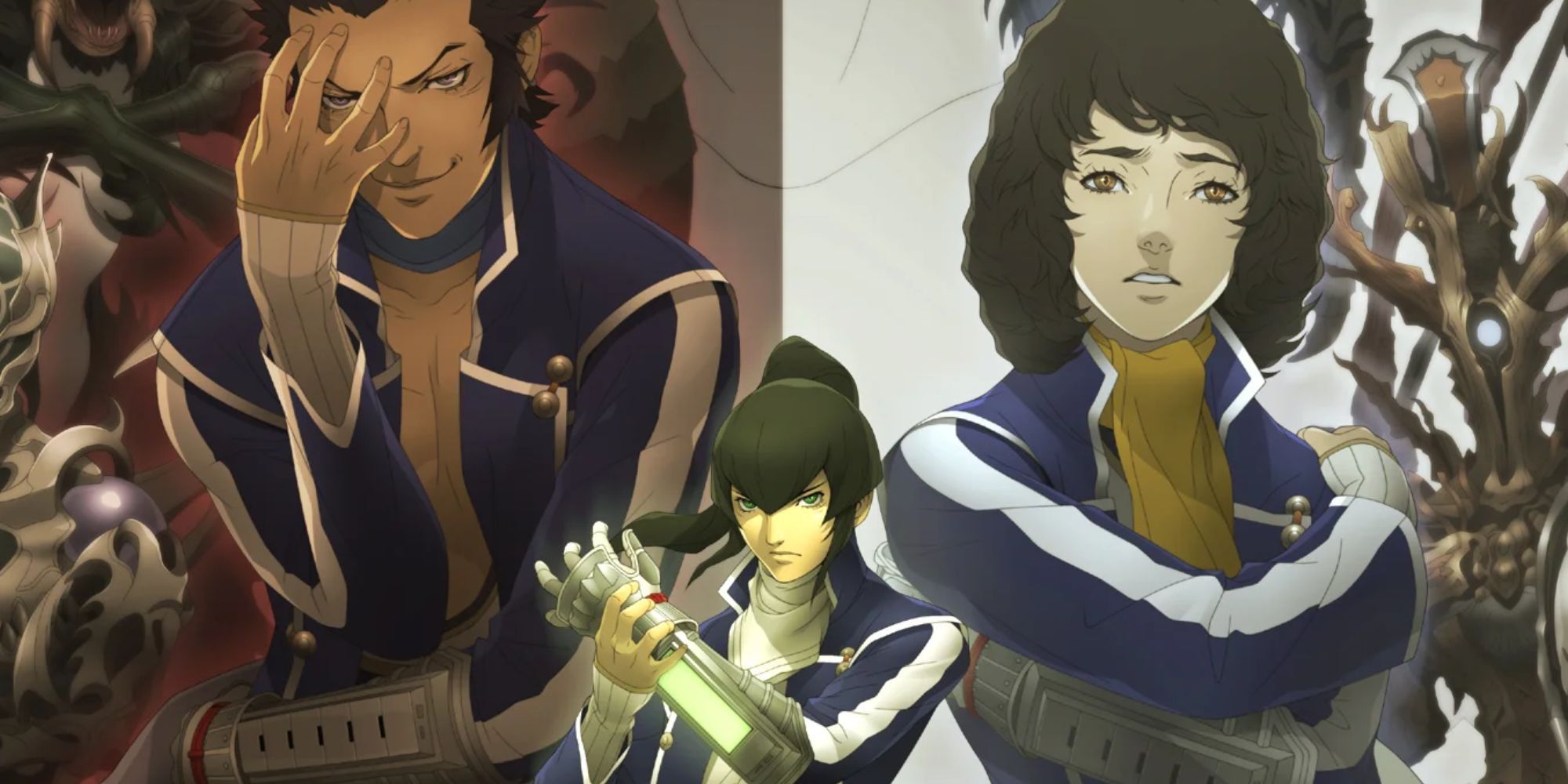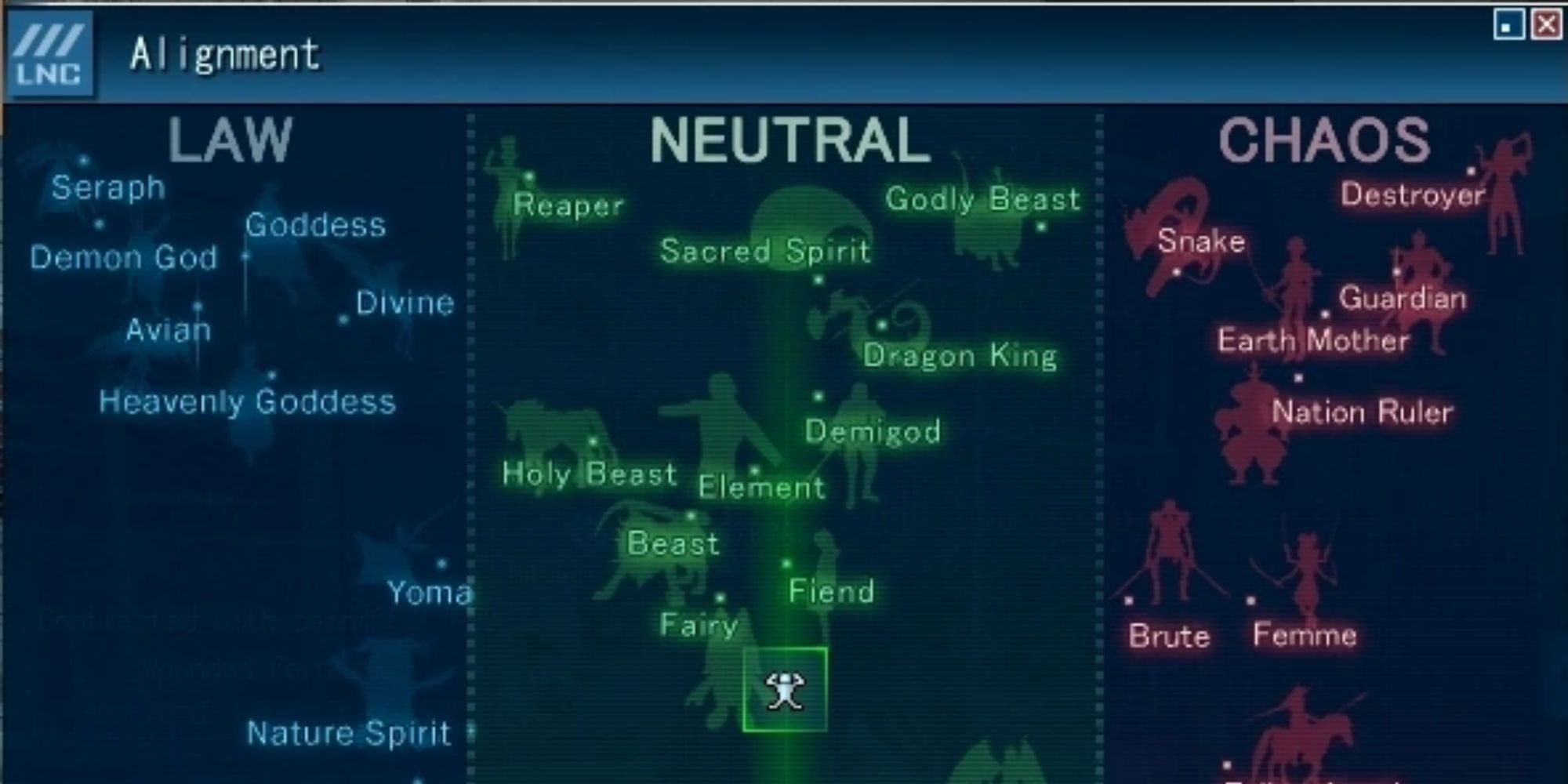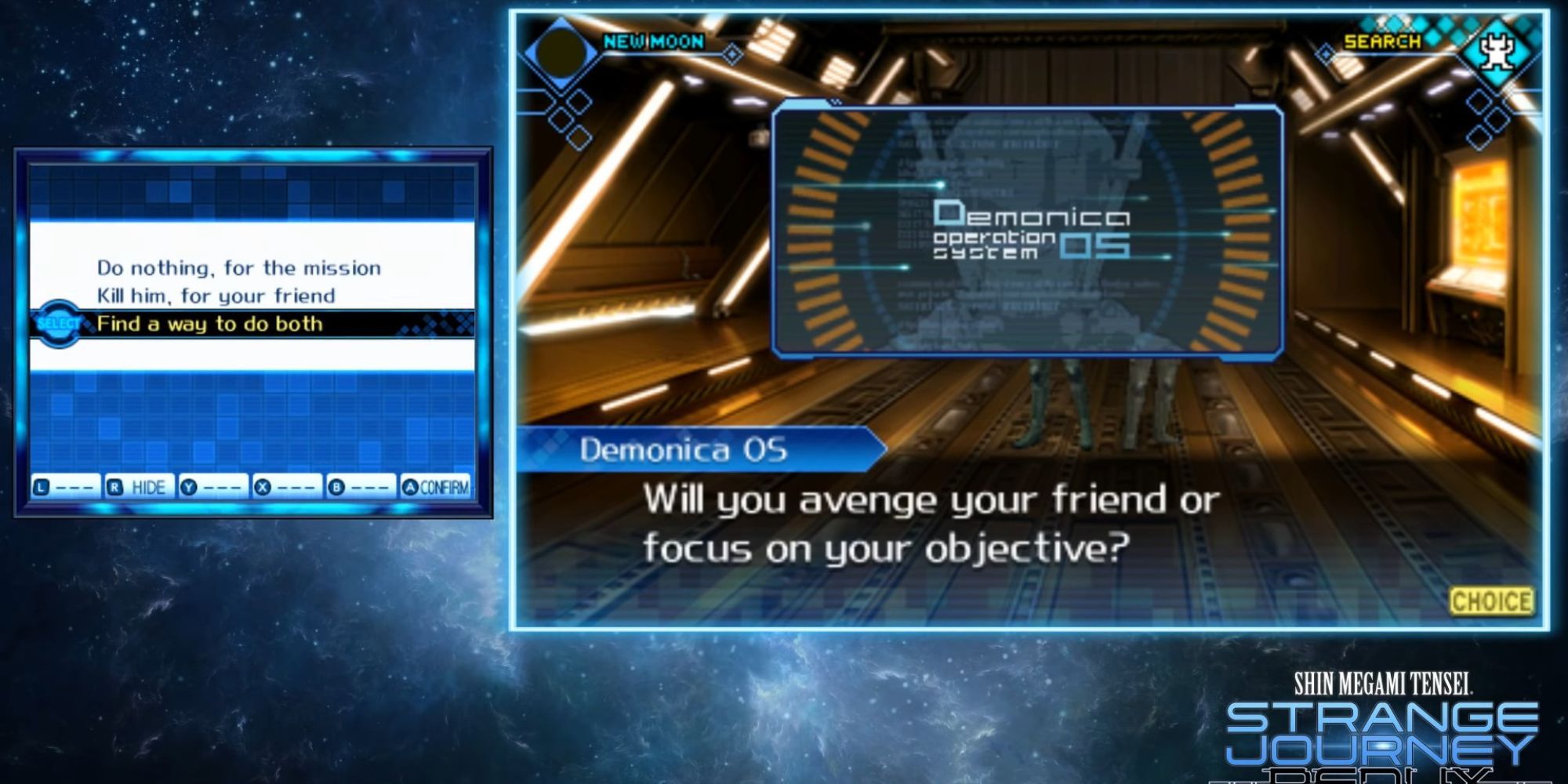Highlights
- Persona games limit player choices and outcomes, resulting in predictable and inconsequential narratives.
- The Shin Megami Tensei series handles player choice and agency brilliantly, with choices that shape the world and unlock new story paths.
- Persona should incorporate more consequential choices and interactions that make players contemplate their actions and meaningfully shape the narrative.
I've always had a nagging feeling about Persona games. Sure, they promote living life to the fullest and being true to oneself, yet they limit the player to numerous scripted events with shallow choices and predictable outcomes. What I would really like to see in Persona 6, or any future Persona title, is a more consequential narrative. It's not like Persona needs to look far for inspo, because its own parent series, Shin Megami Tensei, handles player choice and agency brilliantly.
Before delving into what Shin Megami Tensei does right, it's important to highlight what Persona gets wrong. Take any choice from Persona 5, for example, and you'll notice that the answers generally fall into three distinct patterns. There's the obviously correct answer that rewards you more relationship points, a milder answer with less relationship reward points, and then a third option that's either silent or a humorous but irrelevant response like 'Aloha' or 'Call Me Daddy'.
Making the wrong choice usually just results in more time spent trying to win the character's favor and unlocking the next confidant level, but it doesn't make any significant changes to the relationship itself or the player's journey.
In Shin Megami Tensei 4, you actively shape the world and your future through a sophisticated alignment system. By telling your friend that being a samurai is a noble duty rather than a natural inclination, you earn hidden alignment points towards the righteous natural system. On the other hand, if you choose to eliminate the leader of a cult instead of sparing them, you will lean toward the opposite extreme.
What's really intriguing here is that the game never tells you which way you're leaning with each answer or decision, and the story outcome–along with the exclusive dungeons and demons (Tensei's equivalent to personas) you unlock in each route–depends on the points you accumulate from your various choices and actions in critical situations. There are around 90 of these decisions throughout the game, so you'll always feel like there's a payoff for every little thing you do or say.
However, it's not as simple as it sounds, as some choices are not explicit decisions, but rather remarks tied to more subtle aspects, such as how you introduce yourself to your samurai partners or whether you agree or disagree with their views. Certain questions force you to make crucial choices that could either preserve the status quo or disrupt the world order, rewarding you with a substantial +10 Alignment points.
More inconsequential choices, meanwhile, such as responding to someone by claiming you've never met them despite their sense of déjà vu, will only give you +1 or +2 points. The impact of these choices varies depending on the intensity of the situation, but thanks to this variety, every moment of the game feels like a thorough cross-examination that engages you as a player rather than simply guiding you through predetermined actions and scenarios.
Shin Megami Tensei: Deep Strange Journey takes the concept of cross-examination to a whole new level by presenting you with ambiguous scenarios that determine how your character build evolves. For example, you might be asked whether you'd prioritize saving innocent people over seeking revenge on your past enemies, or whether you'd risk inciting a riot by capturing a spy disguised as a religious leader. And your answers will determine whether you will earn more points in Luck, Magic, or other parameters. These questions add a certain personal touch and help shape the game around your own unique mentality and way of thinking, though they might seem out of place in the more light-hearted Persona games.
And of course, I don't want Persona to end up being something it's not, or imitate the darker quirks of its parent series. In fact, Persona 5 Royal perfectly captures what I want from the upcoming Persona in the newly added Maruki Palace. Since each palace is based on the mindset of a villain, the palace asks you questions like how far you'd go to actualise your dreams, or what would you steal if you had the power to steal hearts like the Phantom Thieves (steal nothing, steal evil hearts, the hearts of the ones you love, etc.).
The irony here is that the correct answers are not the most logical ones, but the ones that Maruki himself uses to justify his dogmatic actions. So the questions here feel more like a test of the player's empathy and understanding. The lack of these experiences in other palaces felt like a huge missed opportunity to delve into the minds of the other villains.
Long story short, I want Persona to speak to me like Shin Megami Tensei does. I want to feel like every press of the X button is different, and I want a real incentive to stop skipping dialog that I have seen a million times in other slice-of-life anime. I want questions and interactions that make me contemplate my actions and choices, and I want to feel like I'm learning something new from my playthrough.
The Persona formula, as it stands, doesn't quite meet these criteria, and if it doesn't shake things up, then I'm not sure I'll be as enthusiastic about reading through another 100 hours of the same inconsequential dialogue as every other Persona title.




